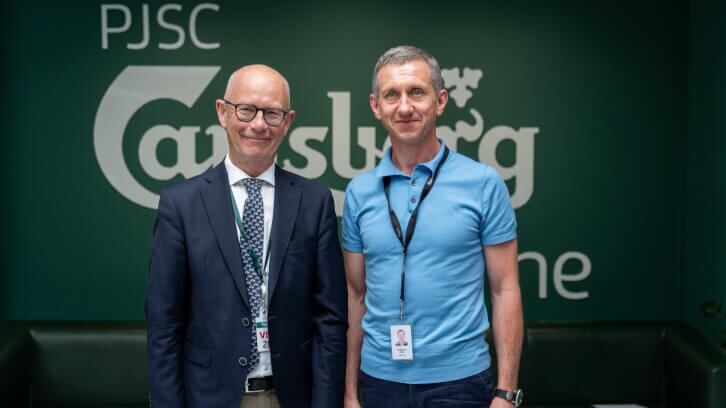The action plan has been created in dialogue with stakeholders in the field with the ambition to spread healthy and climate-friendly foods on Danish plates and at the same time create a leading Danish plant-based food production for dining tables in the rest of the world, the government announced.
Minister for Food, Agriculture and Fisheries Jacob Jensen said: “There is no doubt that a more plant-rich diet – in line with the Official Dietary Guidelines – helps to reduce our climate footprint. We need the action plan that shows how we can support the entire plant-based value chain and thereby contribute to the necessary transition. The production of plant-based foods is also a unique opportunity to increase Danish food exports and take the lead in the field. With this action plan, the government has thus set the direction for the continued development of the agricultural and food sector.”
Plant-based foods have been identified as a future growth area by the Danish government, where new earning and job opportunities go hand in hand with regard to the environment, climate and health. The action plan said it had a broad understanding of plant-based foods: all foods made from plants as well as edible fungi, algae and beneficial microorganisms.
The action plan provides an overview of a number of initiatives that strengthen plant-based foods throughout the value chain, including funds and subsidy schemes, advice for start-ups, development of plant-based further and further education as well as initiatives to attract investment and strengthen Danish plant-based exports.
The Good Food Institute Europe, which works to advance alternative proteins, welcomed the plan. Acacia Smith, senior policy manager said: "Denmark has set an important precedent by becoming the first country to publish an action plan showing how its citizens and economy can transition towards more sustainable plant-based foods.
"Europe is the world's biggest market for plant-based meat, and to take advantage of this growing industry – as well as to boost food security and create future-proof green jobs – other national governments across the continent should follow the Danish lead."
Funding falling short?
But the Vegetarian Society of Denmark complained that goals and funding were missing. "Denmark is the first country to develop an action plan specifically for plant-based foods. Therefore, the plan itself is internationally groundbreaking. It is also positive that there is focus on so many aspects—ranging from research, product development, and export of Danish products to the training of kitchen professionals. We have received a lot of inquiries from NGOs, politicians, and businesses abroad, all who have been just as eagerly awaiting the action plan as we have," said Rune-Christoffer Dragsdahl, the Secretary General of the Vegetarian Society of Denmark.
“For example, the plan mentions the upgrading of personnel in public and private kitchens, as well as a greater focus on plant-based diets in primary schools and higher education, as areas for intervention. This is something the Vegetarian Society of Denmark has long pointed out as necessary if the plan to make Denmark a plant-based pioneer is to succeed.”
However, there is room for a wide range of improvements if politicians' ambitions are to be fulfilled. For instance, policies for public kitchens are missing, as is a review of all relevant education programs, and most importantly, funding on a much larger scale.”
There is evidence, meanwhile, that consumer demand particularly in the plant-based meat category is flagging.
“The Plant Fund, which closed its first application round for a fund of DKK 58 million (€7.78 million) in the autumn, was massively oversubscribed,” said Dragsdah. “This suggests that the plant-based sector is still severely underfunded in relation to the need. Recommendations from experts at several of the country's universities also indicate that at least six times the amount should be invested—recommended at DKK 600 million (€80 million) annually—in a targeted effort for plant-based foods in Denmark alone.”





